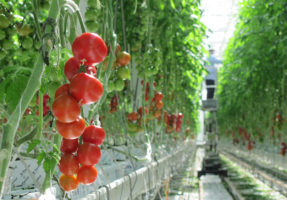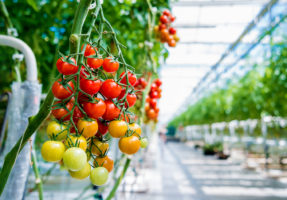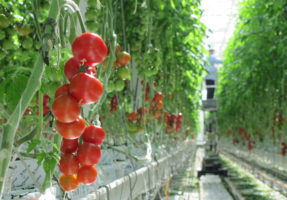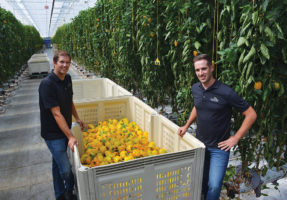Details of the new point-of-sale carbon tax rebate for greenhouse growers were announced this week as the new scheme took effect.
Originally announced in the February 28 provincial budget, the point-of-sale rebate means eligible greenhouse growers will pay just 20% of the carbon tax levied on natural gas and propane purchased to heat their greenhouses or produce carbon dioxide for their crops.
“To be eligible for the reduction, commercial producers must use more than 90% of the greenhouse for growing vegetables, ornamental flowers or plants, forest seedlings or nursery plants,” the province states, provided annual sales total at least $20,000.
While greenhouse cannabis growers are not eligible for the exemption, the benefits represent a win for the greenhouse vegetable and floriculture sectors.
“We’re quite happy with this, for sure,” says Linda Delli Santi, executive director of the BC Greenhouse Growers Association.
The province estimates the rebate will be worth $20 million to greenhouse growers this year.
The change moves BC closer to a similar program in Ontario, with one key exception.
Growers using natural gas or propane delivered to their farms for purposes other than greenhouse heating or carbon dioxide production will be required to pay the tax owing on the ineligible portion of consumption.
“In their program, they don’t even talk about heating the office space or any houses on the property. They just get one gas meter and they pay 20% and get the rest taken off,” Delli Santi says.
BC growers must fill out a declaration stating ineligible consumption and tax owing.
“Ours is still looking at the fact that you don’t get 80% back if you’re heating a house or office space.”
Suppliers’ invoices must charge the full carbon tax then credit it back to growers. The province says fuel suppliers must develop and implement their own point-of-sale processing systems to address this requirement.
Since consumption for April won’t be billed until the first week of May, suppliers have a few weeks to make the necessary adjustments.
Delli Santi says the industry’s next hope is for the passage of a federal private member’s bill, C-234, which would amend the federal Greenhouse Gas Pollution Pricing Act to extend an exemption from the federal carbon tax to fuel consumed by heating and cooling systems for buildings “used for raising or housing livestock or for growing crops” as well as drying grain.
The bill has advanced to the senate, where it received first reading March 30.













 New business registry planned
New business registry planned